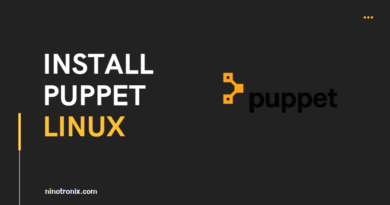All about Chef DevOps Tool
DevOps is a set of practices that combines software development (Dev) and IT operations (Ops) to achieve faster and more reliable software delivery. One of the popular tools used in DevOps is Chef, a configuration management tool that automates the deployment and management of infrastructure and applications.
Chef is a powerful tool that allows developers and IT professionals to automate the creation and management of infrastructure and applications, and ensure that they are always up-to-date and running smoothly. Chef uses a declarative programming language called Chef Infra to define the desired state of an infrastructure, and a set of cookbooks, recipes, and resources to automate the configuration and management of that infrastructure.
At its core, Chef is designed to help teams manage infrastructure at scale. With Chef, teams can define the desired state of their infrastructure as code, which means they can version, test, and track changes to that infrastructure in the same way they would with application code. This makes it easier to collaborate, reduce errors, and ensure consistency across environments.
Chef’s configuration management capabilities make it an ideal tool for managing complex infrastructures with multiple servers and services. With Chef, teams can define the configuration of their servers and services, including the installation and configuration of software, the creation of users and groups, and the management of files and directories. Chef can also automate tasks such as monitoring, backups, and security updates.
One of the key benefits of using Chef is its ability to ensure consistency across environments. By defining infrastructure as code, teams can ensure that their development, staging, and production environments are all configured in the same way. This reduces the risk of errors and makes it easier to troubleshoot issues.
Chef also has a powerful testing framework called Test Kitchen, which allows teams to test their infrastructure code in a variety of environments and configurations. Test Kitchen can be integrated with popular testing frameworks such as RSpec and Cucumber, and can be used to test Chef cookbooks, recipes, and resources.
Another powerful feature of Chef is its ability to integrate with other DevOps tools. Chef can be integrated with version control systems such as Git, continuous integration tools such as Jenkins, and monitoring tools such as Nagios. This makes it easier to automate the entire software delivery pipeline, from code commit to production deployment.
Chef also has a robust community of users and contributors, which means there are many resources available for learning and troubleshooting. The Chef Supermarket is a repository of cookbooks and resources that can be shared and reused by the community. The Chef Docs provide comprehensive documentation and guides for using Chef, and the Chef Community Slack channel is a great place to ask questions and get help.
In summary, Chef is a powerful tool for automating infrastructure and application management in DevOps environments. By defining infrastructure as code and using a set of cookbooks, recipes, and resources, teams can ensure that their infrastructure is always up-to-date and running smoothly. Chef’s testing framework and integrations with other DevOps tools make it an ideal tool for automating the entire software delivery pipeline. With its robust community and resources, Chef is a great choice for teams looking to improve their DevOps practices.




